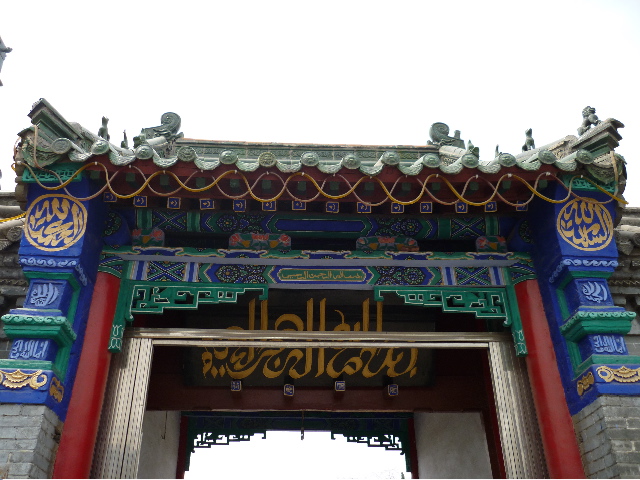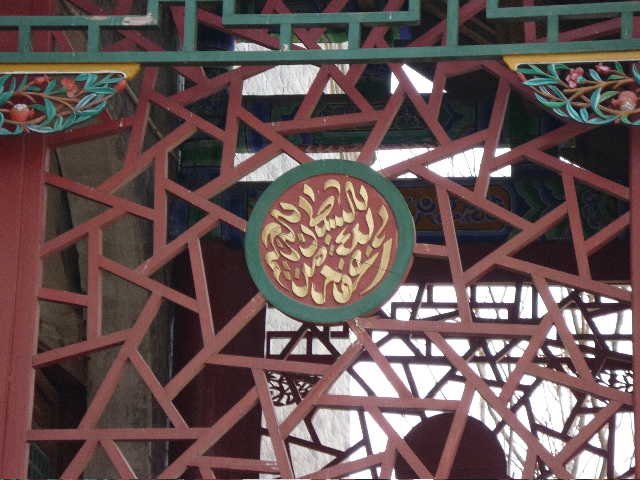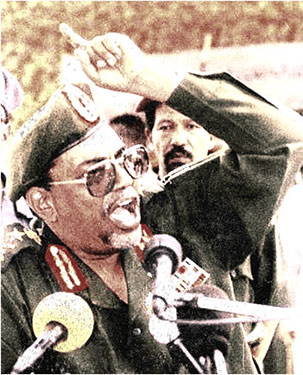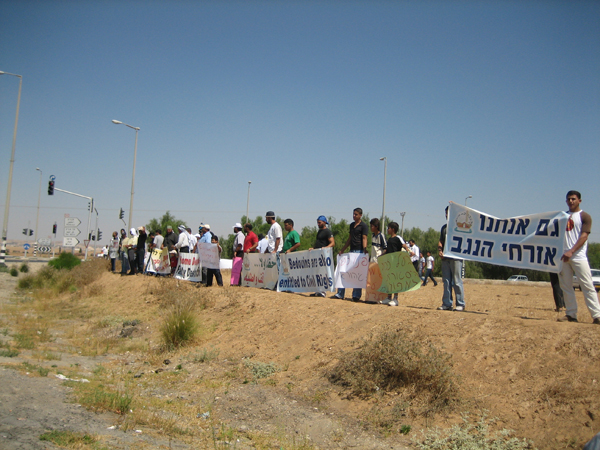Ukraine and Palestine: geography denial
Zionist settlers in Hebron raise a banner reading “Palestine never existed!” This perverse denialism is alas mirrored in much that the “left” is saying about Ukraine.
Zionist settlers in Hebron raise a banner reading “Palestine never existed!” This perverse denialism is alas mirrored in much that the “left” is saying about Ukraine.
Circassians are calling for a boycott of the Sochi Winter Olympics, demanding that Russia's 19th-century military campaign against their people be recognized as a genocide.
In the wake of the Volgograd terror blasts, Putin is preparing a new offensive against Chechen insurgents seeking to rebuild the 19th century "Caucasus Emirate."
Human rights lawyer Xu Zhiyong, who defends Chinese peasants struggling to keep their lands, proclaims his support for the Tibetans and calls for Han solidarity with their cause.
A deadly suicide attack on the funeral of a police officer killed the previous day in a firefight with militants may signal a new advance of the Chechen insurgency into the Ingush Republic.

Trump, the great enthusiast for dictators, suddenly develops a touching concern with democracy in Venezuela, grasping at the opportunity for long-sought regime change. Predictably overlooked in the world media's Manichean view of the crisis are voices of Venezuela's dissident left that takes a neither/nor position opposed to both the regime and the right-wing leadership of the opposition. Also unheard are voices of indigenous dissent and resistance. In an episode that received little coverage, December saw protests in the remote Orinoco Basin after a leader of the Pemón indigenous people was killed in a confrontation with elite Military Counterintelligence troops. The military operation was ostensibly aimed at clearing the region of illegal mining—while the Pemón themselves had been protesting the mining. The indigenous leaders view the militarization of the region as intended to make way for corporate exploitation under the Orinoco Mineral Arc plan. (Photo: EcoPolitica Venezuela)

 Seeking to legitimize his regime now that he's reconquered most of Syria (with massive Russian military help), Bashar Assad has just welcomed the first Arab League leader to Damascus since the war began in 2011—none other than President Omar Bashir of Sudan, who is wanted by the International Criminal Court for crimes against humanity and genocide in Darfur. The Assad regime's official news agency SANA said the two dictators discussed the "situations and crises faced by many Arab countries," stressing the need to build "new principles for inter-Arab relations based on the respect of the sovereignty of countries and non-interference in internal affairs." The Assad regime is itself now credibly accused of genocide, with a mass extermination of detainees amply documented, not to mention serial use of chemical weapons and massive bombardment of civilian populations. Assad and his generals may yet face war crimes charges before the ICC. (Photos: Pinterest, BashirWatch)
Seeking to legitimize his regime now that he's reconquered most of Syria (with massive Russian military help), Bashar Assad has just welcomed the first Arab League leader to Damascus since the war began in 2011—none other than President Omar Bashir of Sudan, who is wanted by the International Criminal Court for crimes against humanity and genocide in Darfur. The Assad regime's official news agency SANA said the two dictators discussed the "situations and crises faced by many Arab countries," stressing the need to build "new principles for inter-Arab relations based on the respect of the sovereignty of countries and non-interference in internal affairs." The Assad regime is itself now credibly accused of genocide, with a mass extermination of detainees amply documented, not to mention serial use of chemical weapons and massive bombardment of civilian populations. Assad and his generals may yet face war crimes charges before the ICC. (Photos: Pinterest, BashirWatch)
A suicide bomber killed at least 130 at a campaign rally in Pakistan's Balochistan province— the deadliest attack in the country since 2014. A local candidate with the Balochistan Awami Party was among the dead. The local franchise of the Islamic State took credit for the attack. Radio Free Europe portrays the BAP as part of the Pakistani military establishment’s plan to undermine Baluch ethno-nationalist groups. Balochistan province is part of the larger region of Baluchistan, homeland of the Baluch people, long divided between Iran, Pakistan and Afghanistan. There are movements for Baluch independence in each of these countries, but they have been unable to unite across the nation-state boundaries. The attack may point to an ISIS strategy to disrupt electoral ethno-nationalist initiatives, and co-opt the Baluch struggle across all three borders, wedding it to Sunni extremism. (Map via Atheer)

A crisis over the Yemeni island of Socotra was resolved as the United Arab Emirates agreed to withdraw and turn control over to Saudi forces, which will in turn restore full Yemeni rule. The island is a UNESCO World Heritage Site for its unique flora and fauna, hailed as the "Galapagos of the Indian Ocean." Emirati forces seized Socotra at the start of the month, and raised their flag over the airport and other strategic points—sparking angry protests from residents. Socotra's governor condemned the move as an "occupation" and "a flagrant violation of Yemeni sovereignty." Even after the de-escalation, suspicions remain. Yemen's ambassador to UNESCO, Ahmad al-Sayyad, accused Saudi Arabia and the UAE of "a hidden inclination to divide Yemen." (Map via University of Texas)

Colombia's peace process continues to advance, with institutional mechanisms for a post-war order falling into place. But violence in the countryside across Colombia remains at an alarming level, as social leaders are targeted for assassination by paramilitary factions. The ELN guerilla organization—which, unlike the FARC, remains in arms—released a statement noting that January had seen an assassination every day across the country, and charged that rightist paramilitary networks are carrying out a "systematic genocide."